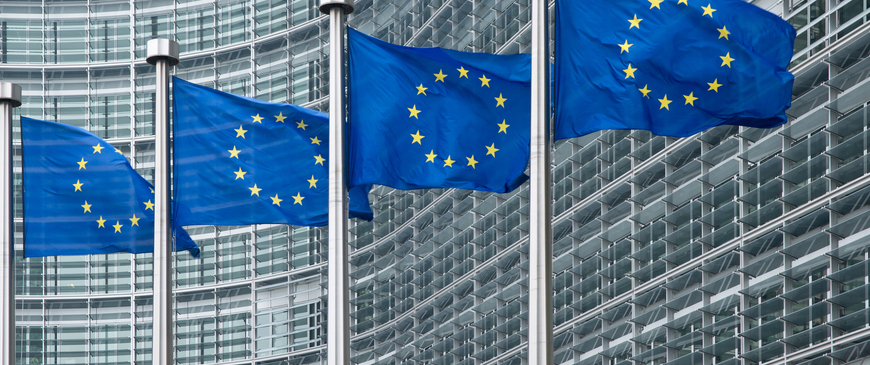
Has the EU turned to the right?
For the first time, the European Parliament elections have taken place without the United Kingdom. From 6th– 9th June, citizens from across the EU went to the polls. But what is next for the bloc – and what do these results mean?
Despite their name, European elections have historically focused on national issues. The 2024 elections were no exception. During the campaign, domestic topics dominated the headlines. Political parties focused on the track record of domestic governments in their campaign instead of the legislation passed by the European Parliament. Other prominent issues that influenced the election in many countries were security and defence, the cost-of-living crisis, and migration.
Ahead of the elections, many analysts warned of a sharp right turn. Indeed, the new European Parliament is more right-wing than its predecessor, with an increase for both radical right and extreme right parties. This reflects a broader trend across the EU where far-right forces are increasingly making gains, and in some countries even are part of the government. But the election results can hardly be considered a radical turn of the Parliament. There is a shift to the right, but the centre has held. Together, the Christian-Democrat Group (EPP), Socialist Group (S&D) and Liberal Group (Renew) continue to hold a majority of seats.
It is therefore highly unlikely that far-right forces will dominate the legislative agenda of the next European Parliament. Additionally, radical right and extreme right political parties tend to be notoriously incohesive at the European level, rarely voting as a bloc. This further weakens their influence.
A Presidential Decision
The first major task of the new European Parliament will be to approve – or reject – the next Commission president. Over the past five years, the German Ursula von der Leyen has headed the European Commission and she has been campaigning for a second mandate. To get there, she needs to pass two hurdles – approval by the heads of state and government of the EU member states, and approval by the European Parliament. With no obvious challenger in sight, her chances to receive both look promising. Von der Leyen is enjoying broad support from EU member states. When it comes to the European Parliament, however, things might get a bit trickier.
While a coalition of EPP, S&D and Renew would theoretically have enough votes to back von der Leyen, several Members of Parliament, including from her own party group EPP, have already announced that they will vote against her. To build a more stable majority, von der Leyen will reach out to potential supporters from other Groups. Last time she managed to scrape through by a few votes without having to secure this broader support base. It is likely she will manage that again.
Once Ursula von der Leyen (or someone else) has been approved as Commission president, she will have to assemble a team of Commissioners. The Commissioners, one sent from each member state, oversee the work of the European Commission. The Commission grinds slowly, and it is likely that the next five years will see more continuity than change. While the outcome of the elections will certainly trigger a slowing down of the EU’s environmental and climate agenda, it is unlikely that any existing legislation will be rolled back. The next Commission will place more emphasis on topics such as security and competitiveness, but hardly attempt a u-turn.
Ultimately, in Brussels, the European Parliament elections have not resulted in major political change. The most severe consequences of the elections have instead played out at the member state level and the results have thrown two of the EU’s most important governments off balance.
In France, the outcome of the European elections has triggered a political earthquake. On the evening of the election, President Macron dissolved the French Parliament and announced snap elections. For the first time, the French far-right could come into power. Macron’s Renaissance party suffered a historic defeat in the elections, obtaining only 14.6%. Meanwhile the extreme-right party of Marine Le Pen, ‘Rassemblement National’ (RN), got 31.4% of the vote share. Macron’s bold decision has led to a lot of speculation regarding his strategy. Likely he hopes that RN, once in power, will prove incompetent to govern and thus decrease the party’s chances at the presidential election in 2027. But it is a risky gambit.
Meanwhile, in Germany, the coalition government of the Social-Democrats, Greens, and Liberals has been deeply unpopular for a while already. Opposition parties presented the campaign as a referendum on the ‘traffic light’ coalition, with success. Combined, the three parties received only 31% per cent of the vote share. By comparison, the largest opposition party, the Christian Democrats, achieved 30%. But the more worrying outcome for the coalition has been the record result for the extreme-right party ‘Alternative für Deutschland’ (AfD) which came in second. Especially in Eastern Germany the party celebrated big wins. Ahead of three regional elections in the East, all taking place later this year, this is a harbinger of things to come.
The outcome of the European Parliament elections showcases how different European countries are struggling to find a response to the rise of radical right and extreme right parties. Collaboration with those parties is no longer a complete taboo, as the past legislature has shown. In a lot of countries, radical right and extreme right parties have already been included into government, most recently in the Netherlands. Where the ‘cordon sanitaire’ still holds, centre-right and conservative forces are struggling to uphold it and find themselves copying the rhetoric of far-right parties in an attempt to get back voters.
The European Parliament elections by no means present a seismic shift. But they have shown that the normalisation of the far-right continues unabated.
Christina Kessler is a Clara Marina O’Donnell fellow (2023-24) at the Centre for European Reform.
